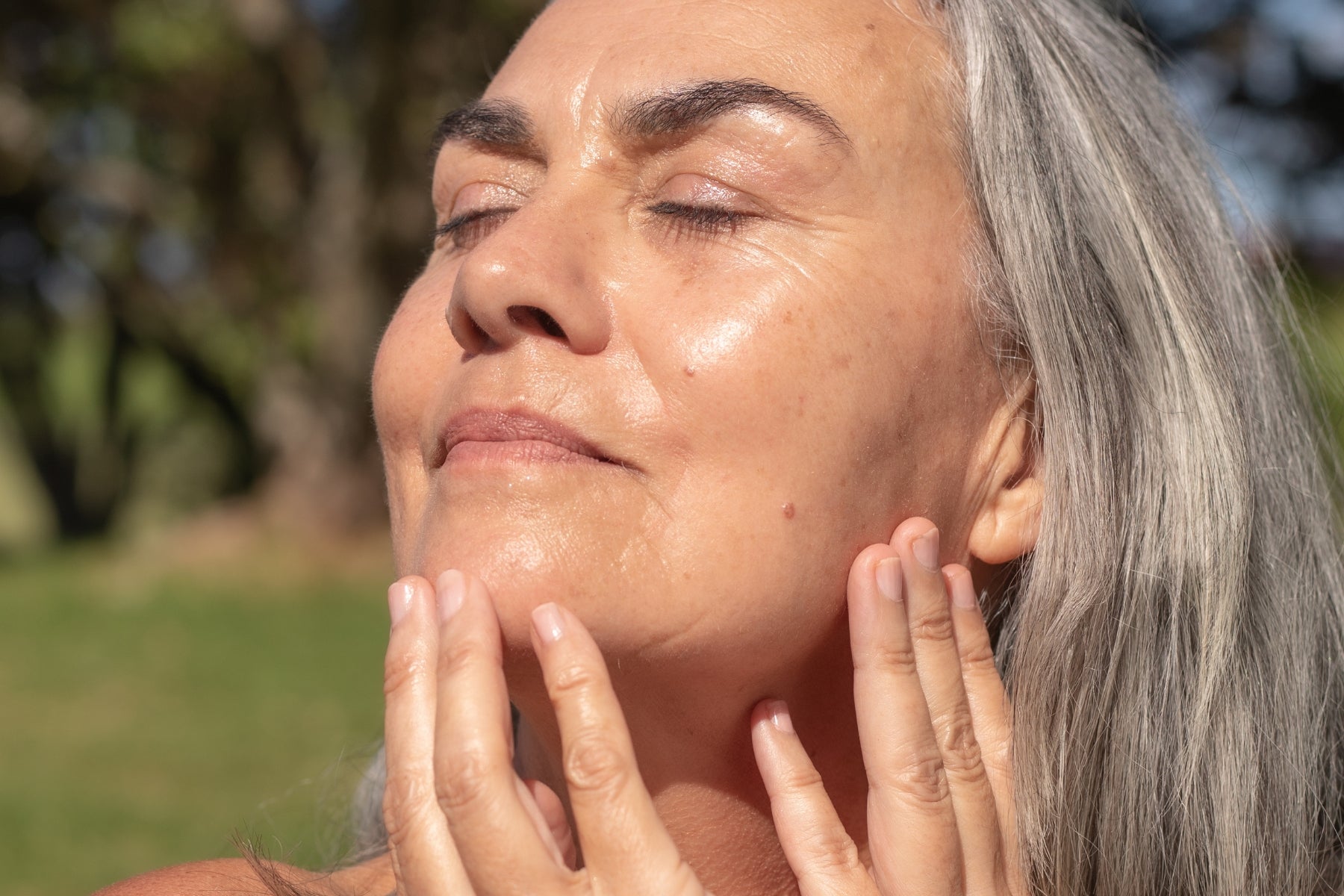Dry skin is a pain in the butt. Not only is it itchy, but severe cases can be very painful – especially when the dry skin patches crack and bleed.
If you suffer from dry skin patches on your face, chances are you also have moderately dry skin across your entire body.
Yes, it's a nuisance, but it can also make you look much older than your actual age – and no one wants that.
Plus, dry skin can also be a sign of poor health in other areas.
Many people don't realize it's important to identify what's causing your dry skin. By doing this, you can find a solution that targets the dry skin at its source instead of treating the symptoms.
What Causes Dry Skin Patches on Your Face?
What causes your friend's dry skin probably isn't the same thing causing yours. Sometimes several factors work in unison to create a perfect environment for dry skin patches on your face.
"Normal" skin looks smooth and soft because fatty tissues, lipids, and oils lock moisture into the surface. Dry skin loses its ability to hold moisture.
More often than not, your lifestyle choices and skincare regimen are probably to blame. However, health conditions can also cause persistent dry skin and patches across the face and body.
Hormonal or Thyroid Imbalances
Hormonal changes are very common as people age. Everything needs to stay in sync for the skin to look healthy and bright. Unfortunately, even small hormonal imbalances can drastically affect your skin's appearance. This leads to wrinkles, dullness, and, yes -- dry skin patches on your face.
Your thyroid is responsible for regulating many processes throughout the body. If your thyroid isn't functioning properly, your skin will probably let you know. An underproductive or over-productive thyroid can make your skin change colour, feel cold to the touch, and look pale. A thyroid problem can also result in dry skin.
If you have a thyroid problem or hormonal imbalance, chances are, you also suffer from a variety of other symptoms including weight loss or gain, tiredness, grogginess, inability to focus, increased or reduced appetite, and many more.
Dehydration and Malnutrition
Studies show that roughly 75% of Americans chronically dehydrated.
People in other developed countries, including New Zealand (and underdeveloped nations without access to water) probably aren't doing much better. Chronic dehydration can lead to a number of problems and, you guessed it: dry skin.
Vitamin deficiencies can also show themselves through dry skin and other symptoms.
Using the Wrong Skincare Products
Unfortunately, you tend to get what you pay for with skincare products. This rule applies to everything from cleansers and toners to moisturisers and lotions.
This is not to say that all expensive skincare products are worth the money (in fact, many of them are mostly water), but cheap products are often filled with plastics, petroleum and alcohol – both of which contribute to dry skin.
Allergic Reactions
If you have a mild allergy, you may not realize this is what's triggering your dry skin. Make sure to think outside the box for this one: many different things can cause allergies. Look at your food choices, clothing, detergents, and other environmental factors.
Underlying Medical Conditions
Although it's less common, you shouldn't rule out an underlying medical condition as the source of dry skin, and if dry skin is persistent with nothing helping, it may be time to seek medical advice.
Dry Air and Hot Showers
These are two major environmental factors that often cause dry skin patches, and there is even a whole Reddit community dedicated to this topic. Even reducing your shower a few degrees can help tremendously. Hot showers can also make hair look dull and dry. As for air quality, you may not even realize the air in your home or workplace is extremely dry and causing your skin problems, which a humidifier and purifier can help with.
How to Say Bye-Bye to Dry Skin Patches on Your Face for GOOD
Now that you understand the most common causes of dry skin, let's take a look at some possible solutions. Identifying the source of your dry skin patches is indeed the most important part.
Correct the Problem at Its Source
Consider making these lifestyle changes or taking these measures so you can say "goodbye" to dry skin patches on your face now and forever.
- Talk to a doctor about your hormones or thyroid function.
- Eliminate or reduce your alcohol consumption to avoid dehydration.
- Look for oil-based cleansers, moisturisers, and other skincare products.
- Change your diet to identify possible wheat, soy, or dairy allergies.
- Get a humidifier for your workplace and home – run it constantly.
- Don't take hot showers.
- Evaluate your medications with your doctor.
- Take a multivitamin and stick to a healthy diet with lots of fruits, vegetables, and water.
- Apply moisturiser when your skin is still wet to lock-in moisture.
Natural Solutions to Dry Skin Patches on Your Face That Actually Work
Nature provides many solutions for treating dry skin patches on the face and across the body. Try a few and see what works for YOU.
- Soak in a bathtub with milk or coconut milk, oatmeal, and warm (not hot) water.
- Use a honey and olive oil mask every morning and night as part of your skincare routine.
- Mānuka oil ointment: this essential oil contains powerful antibacterials to help prevent the spread of bacteria in the dry skin. Mix with other moisturising substances like cocoa butter, beeswax, and castor seed oil.
If you're ready to ditch the dry skin once and for all, check out our Mānuka Oil Clearing Face Cream today!





